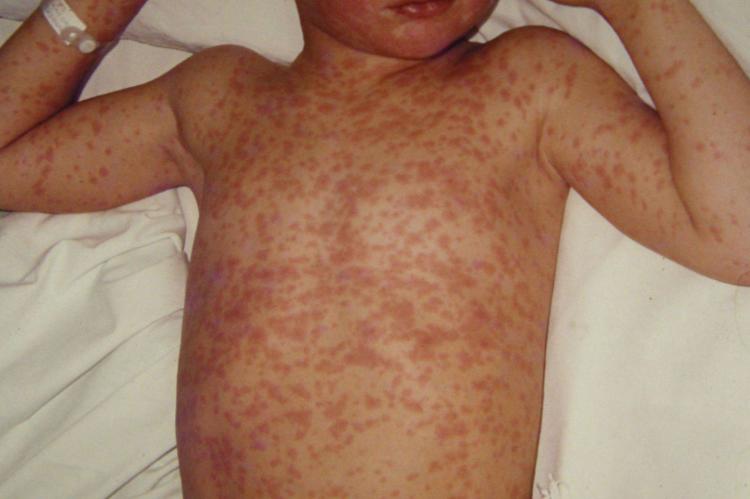Belize’s Measles Comeback: A Warning Ignored, A Nation at Risk
After 34 Years, Measles Returns to Belize — And Exposes Yet Again a Health System That Reacts Too Late
NATIONAL PERSPECTIVE BELIZE | REGIONAL FEATURE
By Omar Silva | Editor/ Publisher
www.nationalperspectivebz.com
Belize City: Tuesday April 2025
For the first time since 1991, measles has re-entered Belize’s borders. The confirmation by the Ministry of Health and Wellness of two cases in the Cayo and Corozal districts has jolted the nation. Yet, to those familiar with Belize’s reactive—not proactive—approach to public health, this alarming development comes as no surprise.
According to officials, both patients—teenagers who recently returned from a group trip to Chihuahua, Mexico—have been placed in isolation. Chihuahua, like many parts of the Americas, is currently grappling with a measles outbreak. So far in 2025, over 500 confirmed cases have been recorded across the region, including in Canada, the United States, Mexico, and Argentina. Belize is now the latest addition to that list—a title we could have avoided.
The Perfect Storm: Low Vaccination, Weak Surveillance, Delayed Alerts
Vaccination coverage remains dangerously low. The national MMR2 coverage sits at 83.9%, well below the 95% threshold required for herd immunity. The Cayo District, where one of the cases was detected, lags even further behind at 73%.
In a stunning admission, officials revealed that only 39,000 doses of the measles vaccine are currently available, originally set aside for infants. In other words, there is no buffer stock for emergencies or adult and adolescent coverage. While Mexico has offered vaccine support, we are once again dependent on others for our national health security.
To make matters worse, the Ministry waited until after confirmation to officially notify the public, despite having initiated internal investigations days earlier. This delay, in a world where measles spreads faster than COVID-19 and is transmissible even before symptoms appear, amounts to a dangerous gamble.
“Not because we haven’t made a public statement that we are investigating, does it mean we are not doing all that is needed,” said Director of Public Health Dr. Melissa Diaz Musa in response to criticism of the delayed announcement.
But in the face of a re-emerging disease not seen here for over three decades, the public deserves immediate alerts—not bureaucratic caution.
A Border Too Porous, A Response Too Slow
Flights from Texas—currently the U.S. epicenter with over 500 confirmed measles cases—arrive daily into Belize. Yet, travelers are merely encouraged to self-report symptoms. And with measles being contagious even before symptoms appear, this is an inadequate and risky approach.
Land crossings into Belize from Quintana Roo and Yucatán, where Mexican authorities have reported cases, remain open and loosely monitored. While public health officers are stationed at borders, the Ministry admits that no systematic screening or testing is in place. The nation is relying largely on signage, travel forms, and goodwill—an approach that leaves the back door wide open for further importation.
Reacting to a Threat We Knew Was Coming
This latest episode reinforces a broader concern: the chronic reactivity of the Briceño administration, especially in the health sector. Despite numerous regional alerts, including Guatemala’s epidemiological warning in March, Belize failed to issue its own advisory or activate preventive vaccination campaigns ahead of the Easter travel season—a time of high cross-border traffic.
The truth is this: we were not ready.
“This is the perfect formula for importation,” warned Dr. Natalia Largaespada Beer, Technical Advisor for Maternal and Child Health, referring to the travel risks for unvaccinated Belizeans.
What Now? Urgent Measures Must Be Taken
With limited vaccines, porous borders, and a vulnerable population, Belize must act fast. The Ministry of Health must:
- Declare a National Epidemiological Alert to trigger stronger surveillance.
- Mass procure additional vaccines and establish mobile vaccination clinics across districts.
- Mandate screenings at land, sea, and air entry points—not just passive monitoring.
- Deploy rapid response teams to areas with low immunization rates.
- Launch a national education campaign, especially in underserved communities where vaccine skepticism or access issues persist.
This is no longer about two isolated cases. It is about whether our public health system can shield us from a highly contagious disease that should have remained in history books—not news headlines.
A Moment of Reckoning
For all the glossy press conferences and ribbon cuttings, this moment of public health vulnerability unmasks the truth: Belize’s current health governance, under the PUP administration, continues to be reactive rather than preventive. We saw it with the COVID-19 booster campaigns, with mental health services, and now again with measles.
This is a test of national readiness, leadership, and transparency. The people of Belize deserve not just isolation of cases, but insulation of the nation from further harm.
Let this be the final warning before we lose more than just time.
🧾 Sidebar Box: What You Need to Know
- Symptoms of Measles: Fever, cough, rash, runny nose, conjunctivitis (red eyes)
- Transmission: Airborne droplets, surfaces (up to 2 hours), 90% infection rate among unvaccinated people
- What To Do: Visit your nearest clinic if unsure of your vaccination status and get the MMR vaccine immediately
- Priority Districts for Urgent Action: Cayo, Orange Walk, Belize District
- Log in to post comments

